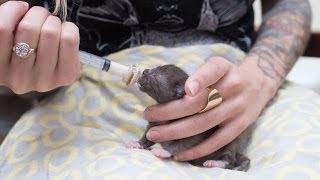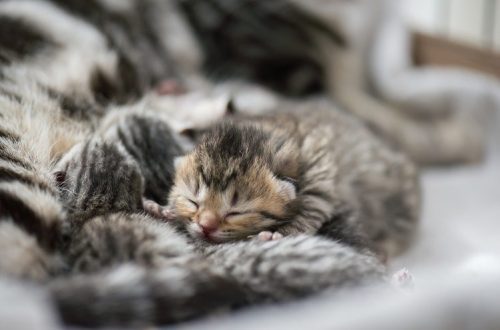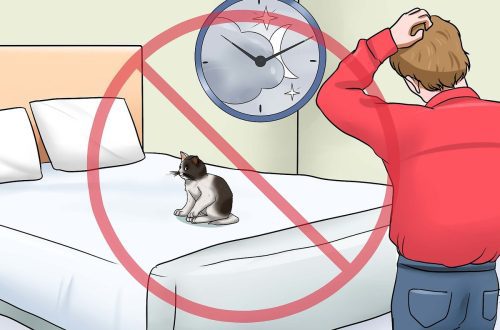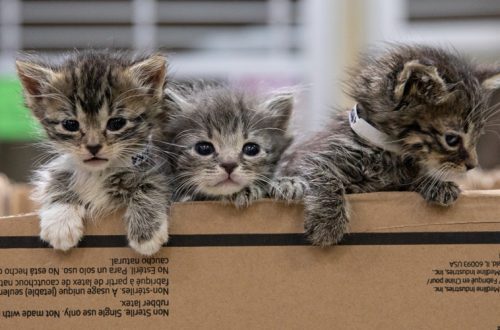
How to feed a newborn kitten?
Feeding products
A special bottle with a pacifier is best for feeding a newborn kitten. If it is not possible to buy it, a pipette is also suitable for the first time, although it is not very convenient to feed the kitten this way, and it is not very useful for him either. The pet must develop a sucking reflex, and with a pipette, milk will fall into his mouth without it.
Whatever you use for feeding, these items should be thoroughly and regularly washed, boiled or sterilized.
Diet
In no case should a kitten be fed cow’s milk, as it is poorly absorbed and not digested. In the stomach, it turns into a lump, which can lead to serious complications and even death.
Powdered milk, baby or special mixtures for kittens are suitable for feeding. You can also use goat’s milk, but it must be diluted with water so that it is not too fatty. Food should be warm, but not hot – no more than 30 degrees.
In the first days of life, a kitten needs very little food – 1-2 teaspoons will be enough. It is advisable to cook food only for one day, and store it in the refrigerator.
Feeding process
To feed a kitten, it must be very carefully picked up and straightened, but do not forget that the baby still has very thin and weak bones that are easy to damage. All actions must be performed very slowly and carefully so as not to frighten him. The tip of the nipple must be carefully inserted into the mouth. To make the pet understand that it is necessary to suck, it can be moistened with the contents of the bottle.
During feeding, a kitten, like a newborn baby, can spit up air that has got in with food, so you need to make sure that he does not choke. For the same reason, the hole in the nipple should be very small – too much liquid, if it enters the respiratory tract, can block them, which can be fatal.
Feeding Schedule
In the first week, you need to feed the kitten every two hours, day and night. Then night feedings can be carried out every four hours, and from the first month one meal per night will be enough. But there is no need to reduce the daily allowances.
In no case should you violate the nutrition schedule, no matter how difficult and tiring it may be, otherwise the pet will develop poorly.
Vitamins
Not a single mixture – even the best and most expensive – can replace mother’s breast milk, which contains all the nutrients necessary for development and growth. Therefore, from the second week of life, the kitten should be given special vitamins in liquid form. But, before introducing them into the diet, it is necessary to consult with a veterinarian so that he picks up the right complex.
Digestion
After each feeding, the belly, anal and urogenital openings of the kitten should be massaged with a soft cloth. This is necessary so that the food is well absorbed and the excretion reflex develops. For some kittens, artificial feeding can cause diarrhea or, conversely, constipation. In the first case, the food should be made less liquid by reducing the amount of water. And in the second – to put enemas with a syringe without a needle, lubricated with petroleum jelly, with 1-5 ml of water.





